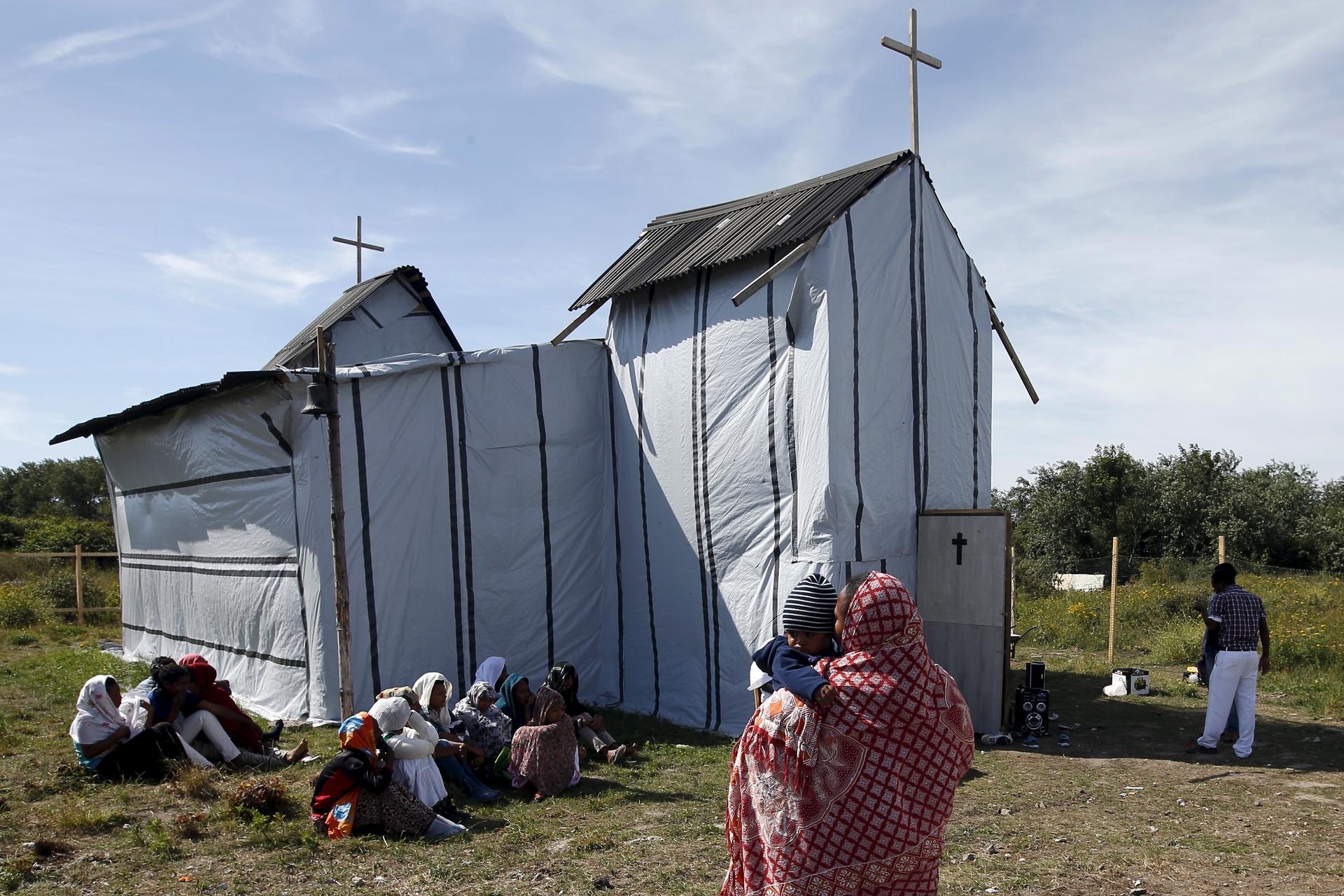Christian women from Ethiopia and Eritrea sing during the Sunday mass at the church in the migrants’ camp near Calais, France
It is not often that a TV show devoted to gentle hymn singing is accused of political radicalism. But this week, one the BBC’s longest running programs found itself at the center of a bitter debate over Britain's attitude to immigration.
"Songs of Praise" has been part of British Sunday afternoon TV for more than 50 years. Traditionally, each episode presents soothing Christian music from around the country, along with reassuring stories of hope and faith. Until this week, that is.
In the latest episode, the show’s producers filmed parts of the show from a church in the "Jungle" — a migrant camp that has grown up around the French port of Calais, just across the English Channel from southern England. Most people in the camp are living there in the hope of migrating to Britain through the Channel Tunnel without proper documentation.
The show came after months of media attention on the Jungle and its residents — with British news channels showing repeated images of camp residents scaling fences and piling into the back of trucks headed to Britain.
For opponents of such immigration, the Jungle symbolizes of all that is wrong with Britain's failure to enforce its borders. For supporters of more a generous immigration and asylum policy, the camp demonstrates the desperation and suffering that people are willing undergo in order to improve their lives. That difference of opinion was seen even in Prime Minister David Cameron's comments on the issue. He recently described the camp's residents as a "swarm" and was then forced to defend his choice of words after being accused of using "dehumanizing" language.
Perhaps unsurprisingly, the reaction to Songs of Praise's invovlement was also strong, particularly in the press.
The Daily Express newspaper accused the BBC of "brainwashing." The Daily Mail described the episode "dreadfully tacky" while also complaining that there had not been enough singing by the migrants. The BBC defended its decision to base the broadcast there. Whether the experiment will be repeated may not be decided by the BBC. According to the Daily Mail, the camp's priest was unhappy with having his face shown on international television and now regrets taking part.
PRI's The World is a co-production with the BBC World Service.
The story you just read is available for free because thousands of listeners and readers like you generously support our nonprofit newsroom. Every day, reporters and producers at The World are hard at work bringing you human-centered news from across the globe. But we can’t do it without you: We need your support to ensure we can continue this work for another year.
Make a gift today, and you’ll get us one step closer to our goal of raising $25,000 by June 14. We need your help now more than ever!
